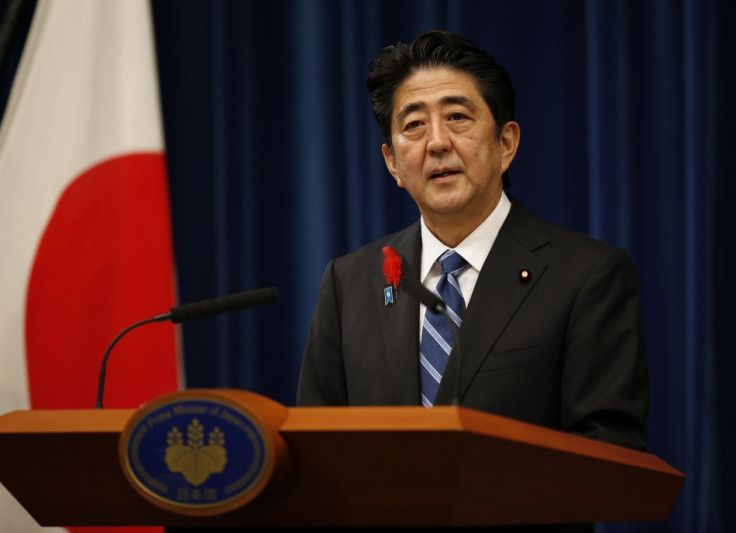Shinzo Abe Eyes 10% Sales Tax Rate for Japan

Japanese Prime Minister Shinzo Abe's new economic draft plan includes a pledge to review the proposed increase in sales tax rate by the end of 2014.
In April, Japan increased the sales tax rate to 8% - the first increase in 17 years - in order to curb its huge public debt and battle falling prices.
Abe is expected to decide by the end of 2014 whether to raise the national sales tax to 10% in October 2015.
"It wouldn't be that easy. I think Prime Minister Abe will more carefully examine various economic indicators than he did [last year] when deciding on an increase from 5% to 8%," economy minister Akira Amari said during a television programme on state broadcaster NHK.
Japan's public debt is the largest among industrialised nations at over 1,000tn yen ($10.21tn, €7.56tn, £6.32tn), which is more than twice its GDP.
The country is also suffering from deflation over the past two decades. Deflation hurts domestic consumption as consumers postpone purchases in the hope of getting a cheaper deal later on.
Japan is targeting an inflation rate of 2% in the near term – a key objective of Abe's policies to revamp the economy.
Following the sales tax increase in April, consumer prices rose at their fastest pace in 23 years, jumping 3.2% from a year earlier.
The hike in sales tax was widely expected to weaken the country's economic growth, but Abe had announced a number measures to cushion the impact of the hike.
The economy grew at a rate of 1.6% during the first quarter, up from the initial estimate of 1.5%.
The Japanese authorities have been confident that economic growth would continue despite the sale tax increase primarily due to a gradual pick up in exports, a key growth driver of the economy.
"The Japanese economy will continue growth above its potential rate as a trend as exports turn up and domestic demand remains firm," Bank of Japan Deputy Governor Kikuo Iwata earlier told the Japanese parliament.
Abe's draft plan also suggests a revision in the corporate tax rate. Other plans include a long-term target of stabilising the population near 100 million with measures including increased subsidies to families with three or more children, and doubling the agricultural income over 10 years.
© Copyright IBTimes 2025. All rights reserved.






















